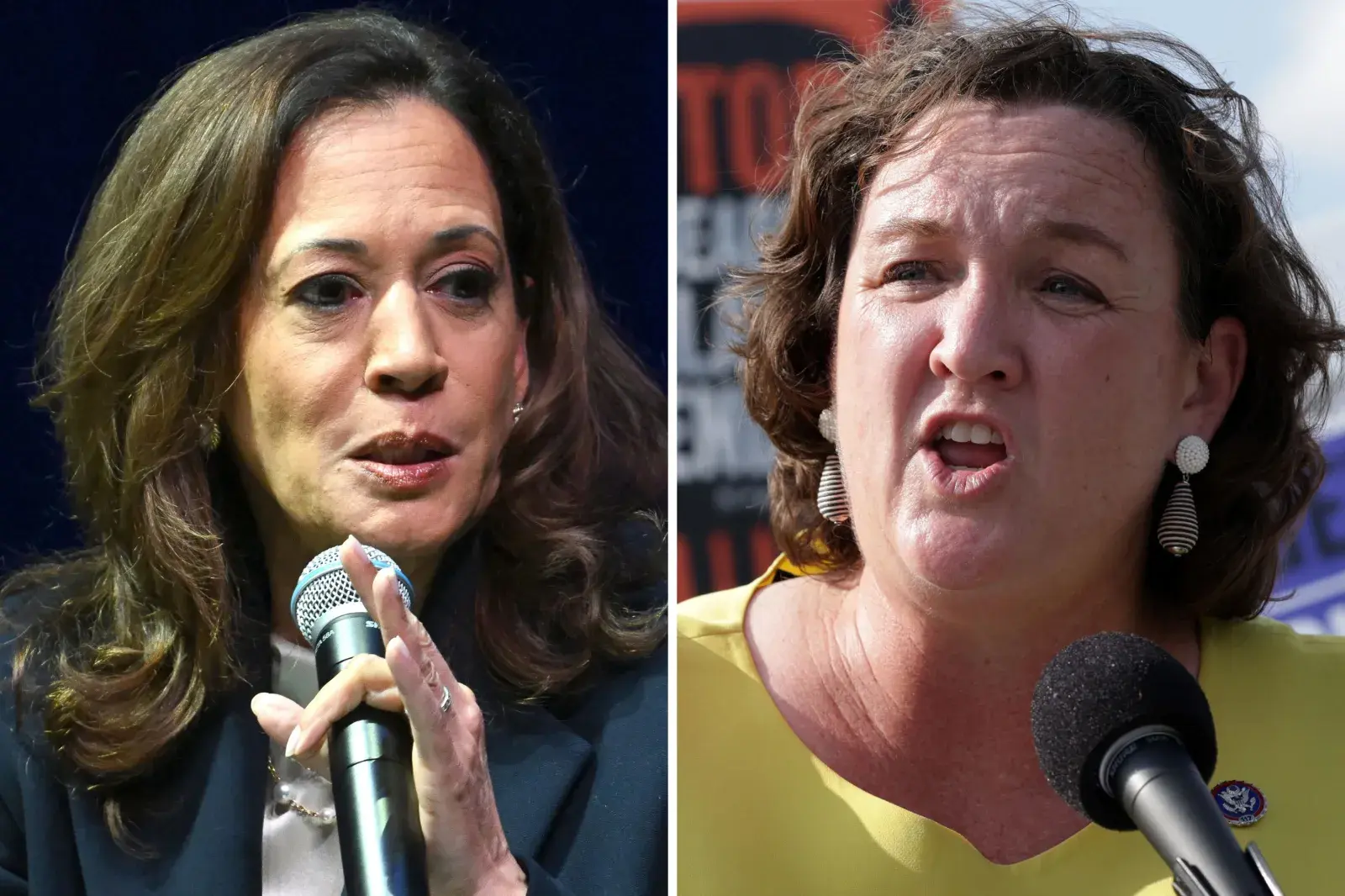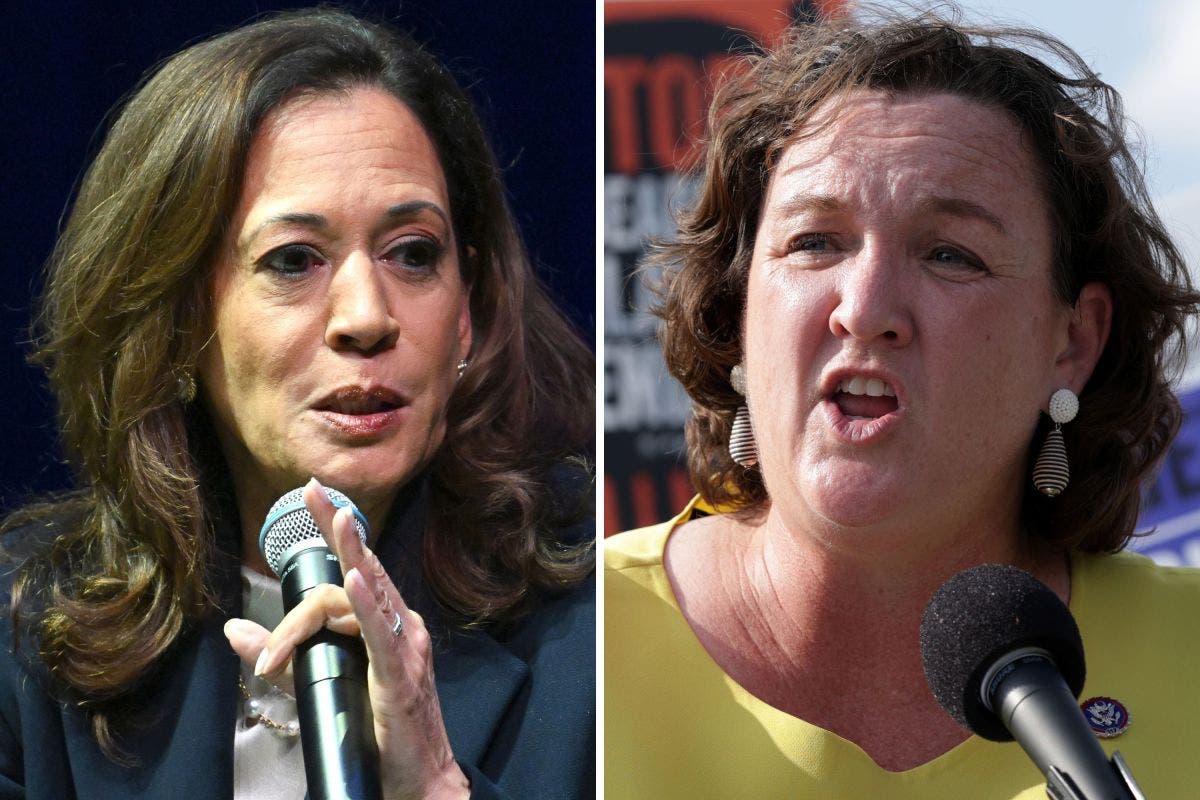Gavin Newsom will step down as governor of California in January 2026, after serving the constitutionally mandated maximum of two terms, offering an opening for Democrats interested in running what is now the world’s fourth biggest economy.
However a number of prominent California Democrats, including former vice president Kamala Harris, have announced they won’t stand while others such as Senator Alex Padilla have yet to declare their intentions.
Speaking to Newsweek one prominent political scientist said she was “surprised there isn’t a bigger name candidate,” while another suggested the candidate pool had been reduced by difficulties some Democratic mayors in California have had running their respective cities.
Newsweek contacted the California Democratic Party for comment on Tuesday via email outside of regular office hours.
The Prize
According to data published in April by the International Monetary Fund (IMF) and the Bureau of Economic Analysis California has overtaken Japan to become the fourth biggest economy in the world, with the IMF calculating its 2024 GDP at $4.1 trillion.
The California governorship has a track record of acting as a steppingstone to the White House with two former governors of the state, Richard Nixon and Ronald Reagan, going on to serve as president. Newsom, who has repeatedly gone viral taunting President Donald Trump on social media, is widely regarded as one of the potential front-runners for the 2028 Democratic presidential nomination.
The Candidates
Thus far a number of Democrats have announced they are running in the party’s primary for the 2026 California gubernatorial election. These include House Democrat Katie Porter, former U.S. Health Secretary and ex-Attorney General of California Xavier Becerra, Ian Calderon, formerly the majority leader in the California Assembly, ex-California State Controller Betty Yee and Antonio Villaraigosa, who served as mayor of Los Angeles from 2005 to 2013.
A Citrin Center/Politico poll of 1,445 registered California voters conducted between July 28 and August 12 found Porter in the lead on 15 percent, ahead of Republican candidates Chad Bianco and Steve Hilton with 15 percent and 10 percent respectively.

However Porter sparked controversy by threatening to leave an interview after becoming frustrated with follow-up questions, and a Zogby Strategies poll of 1,000 likely voters conducted over September 7 to 9 put her on 23 percent of the vote, behind British-born Hilton on 29 percent.
Just as notable however are the potential candidates who have either declined to run, or are yet to enter the race.
In July, Harris said she wouldn’t be running for the governorship of California commenting “for now, my leadership, and public service, will not be in elected office.”
Senator Alex Padilla, the California Democrat who shot to national attention in June when he was forcibly removed from a news conference hosted by Homeland Security Secretary Kristi Noem, has yet to announce a run, as has California’s other Senator, Adam Schiff, who led President Trump’s first impeachment trial in the House.
When asked in March by Politico what he thought about the Democratic primary field, California Attorney General Rob Bonta, who has also ruled out a gubernatorial run, commented: “No one has stood out to me.”
California Lieutenant Governor Eleni Kounalakis initially said she would run for governor, but in August announced she was dropping out and would stand for state treasurer instead.
Speaking to Newsweek Professor Sarah Hill, a political scientist who teaches at California State University, commented: “I’m surprised there isn’t a bigger name candidate. Katie Porter has been leading the pack, but if you look at her political experience, it’s actually very limited (and we’ll see what happens in the polls after her recent difficulties).”
She added: “Here’s what I haven’t been able to figure out, and I’ve been asking around, but so far no one has a good answer: Why hasn’t the Democratic Party rallied around Xavier Beccera as a strong candidate (through endorsements and such)? He’s actually the best qualified at this point. He was popular in Congress and has served as the California Attorney General, which is a very common step to becoming Governor. He also has experience as the Secretary of Health and Human Services, so his resume is great for Governor; I think it’s the strongest in the field.
“If Democrats do get Alex Padilla to run, it seems like he’ll be the favorite. But without him, I’m really curious about why Xavier Beccera hasn’t taken off as a preferred candidate.”
Professor Benjamin Bishin, an American politics expert at University of California, Riverside, told Newsweek: “I think the issue for the most prominent Democrats are either ineligible (Newsom) or have perhaps more attractive positions (e.g., Padilla, Schiff) and they would be stepping down for a term limited position which only makes sense if their end goal is to run for President down the road.”
In an interview with Newsweek Professor Bruce Cain, a political scientist who teaches at Stanford University, said: “There is a lot of ‘Alphonse and Gaston-ing’ going one, with Eleni Kounalakis stepping out, Rob Bonta not yet jumping in, Kamala Harris effectively freezing people out while she could still run, etc.
“What is causing such hesitation? First, it takes a lot of money to come from single digits to electoral viability, and Prop 50 is the top priority in CA until it is voted on. The media markets are huge and expensive. Second, the Democratic Party in CA is split between left and lefter factions. And lastly, become the credible front running and you will immediately draw social media fire from the influencer in chief, Donald Trump. But that said, there is an opening, and ambition abhors a vacuum.”
Proposition 50 is Governor Newsom’s proposal to redraw California’s House districts in a way that would likely give the Democrats additional seats, in response to a similar Trump-backed move by Republican Governor Greg Abbott in Texas.
The Mayoral Problem
Speaking to Newsweek, Professor Taylor Dark, chair of the department of political science at California State University, argued a big problem for the Democrats is a lot of their senior politicians in California have controversial records from serving as mayors of major cities in the state.
He said: “Part of the story here is a lack of popular current or former Democratic mayors. Running Los Angeles or San Francisco has been a massive challenge in recent years, and Democratic governance in these places has not been widely seen as a success story. L.A. Mayor Karen Bass has a very mixed reputation after the fire, homelessness, and other problems, and is in no position to run a statewide campaign. Although one of her predecessors, Antonio Villaraigosa, is in the race, he left the mayor’s office with limited popularity and little political capital—he is unlikely to do well.
“Eric Garcetti also left office under a cloud and is now off in India. In San Francisco, London Breed departed as an unpopular figure, and the current mayor (Lurie) is far too new to run for higher office. Other cities, such as San Jose and San Diego, carry less weight in state politics and don’t currently have mayors who are positioned for a statewide run (although Matt Mahan in San Jose is considered an up-and-comer for the long term). Of course, Oakland’s last mayor is under indictment and may be headed to prison!
“In short, one factor is the difficulty of Democratic Party governance in American cities in recent years, and the damage it has done to several potential rising stars.”

